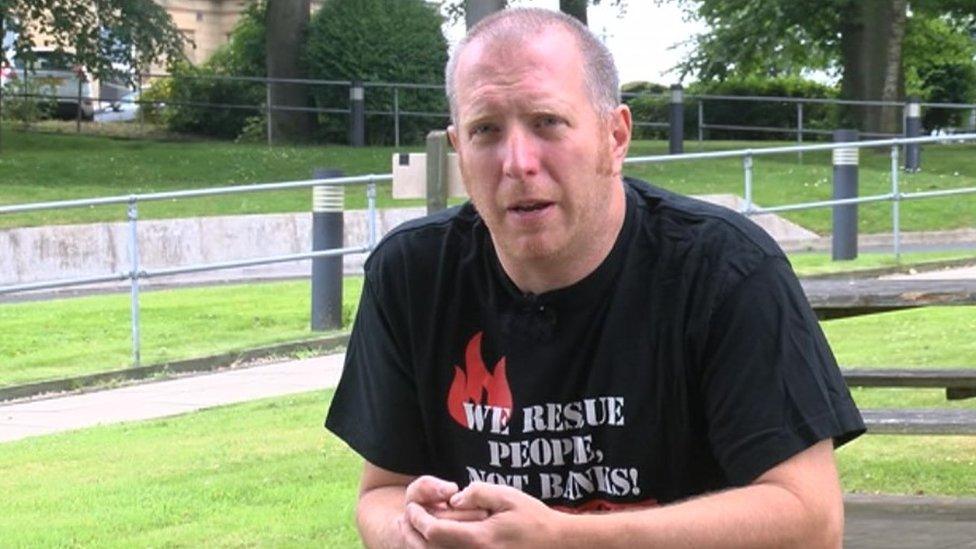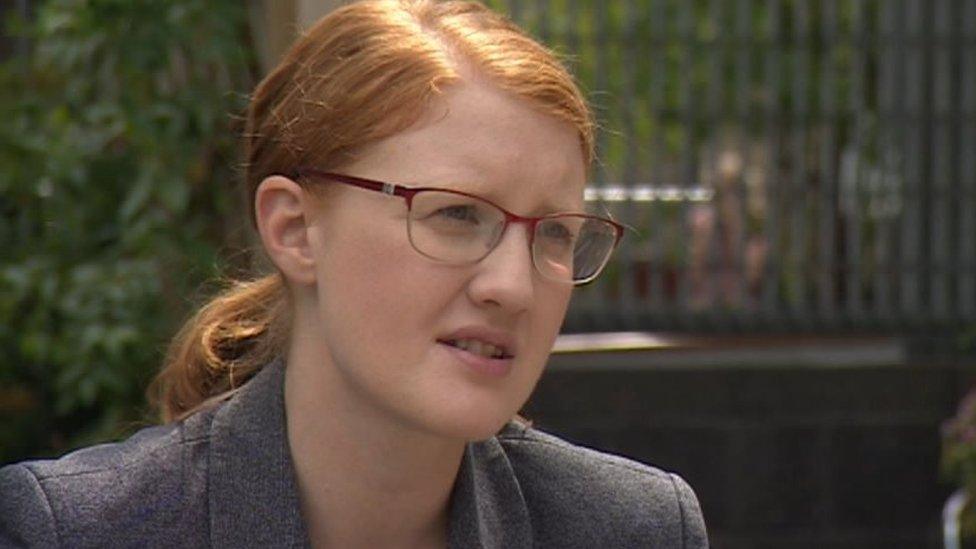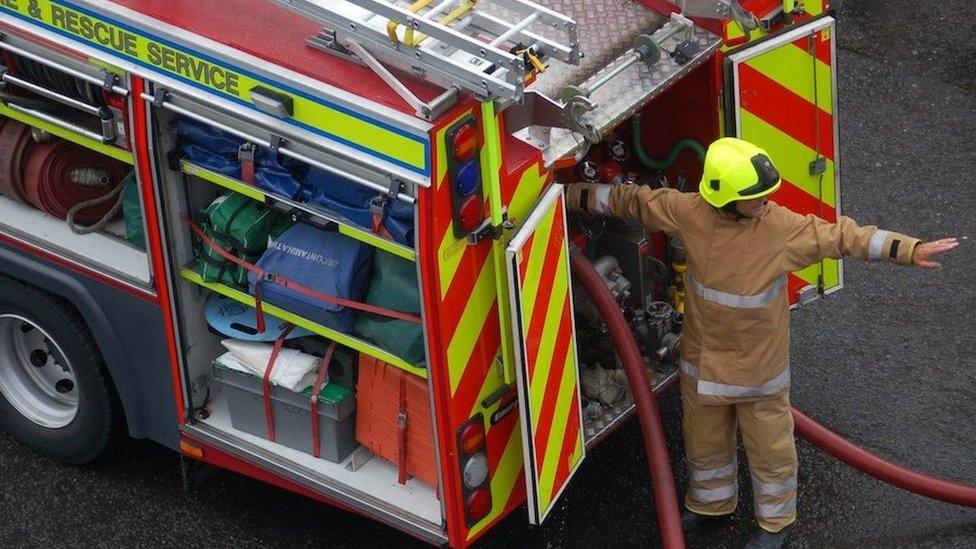New emergency services attack law 'not a deterrent'
- Published
A North Yorkshire PCSO says he had to explain to his young children how he was attacked
A new law to crack down on assaults on emergency service staff is not proving enough of a deterrent, according to the MP who campaigned for the legislation.
The law, brought in last year, meant offenders faced longer jail terms.
Figures obtained by the BBC showed police across England and Wales have made more than 6,500 arrests for attacks on emergency service workers.
Halifax MP Holly Lynch said government "needed to get really tough on this" as the numbers were "still too high".
A big part of the so-called "Protect the Protectors" law was an increase in sentences available to magistrates and judges from six months to 12 months.
Ms Lynch said: "It didn't go quite as far as we would like in terms of being a deterrent.
"What I'm seeing far too often is when sentences are handed out they are suspended sentences or things like community resolutions... which is not enforceable."
A Ministry of Justice spokesperson said: "Attacking our hard-working emergency staff will not be tolerated and the law was brought in so those who commit such violence quite rightly face a stronger punishment, doubling the sentence from six months to 12."

'Nothing to lose'

Firefighter David Gillian described how he was temporarily blinded when a firework was thrown at him and his colleagues in Keighley, West Yorkshire, on Bonfire Night in 2016.
"The fire had been set, we believe, to draw us into that corner and the fireworks were coming from behind us.
"I was holding the hose reel at the time and one fell right between my feet so my reaction was to look straight at it and put the water on it. But, before I could, it went off."
Mr Gillian said imposing harsher sentences was "just masking societal problems" and the attacks were largely down to disaffected people who had nothing to lose.
"These kind of attacks are highly linked with deprivation," he said.
"We need investment in public services and communities to give people opportunities, hope and the thought of doing something better with their lives than attacking emergency services."

Thirty-four out of 43 police forces responded to a BBC Freedom of Information request asking how many arrests there had been under the Assaults on Emergency Workers (Offences) Act 2018.
Figures revealed a total of 6,663 arrests between last November and May of this year.
In West Yorkshire, where there were 504 arrests, the police federation said up to 50 officers were being assaulted every week.
Chairman Brian Booth said: "They're getting head-butted, they're getting punched, kicked.
"Some are getting quite serious injuries where they're having a substantial amount of time off work and this impacts on demand because the public aren't getting the service they need from the officers."
Mr Booth said although there was a maximum sentence set, it was "no good if you're not using it".

MP Holly Lynch started campaigning for a change in the law in 2016
Policeman's daughter Ms Lynch was instrumental in lobbying MPs to support the legislation, which she first introduced as a Ten Minute Rule Bill in 2016.
Her campaign was the result of first-hand experience while she was shadowing West Yorkshire Police.
A routine vehicle stop escalated and the officer she was with found himself surrounded by an angry mob with the Labour MP having to call 999 for back-up.
- Published13 September 2018

- Published27 April 2018

- Published8 January 2018
